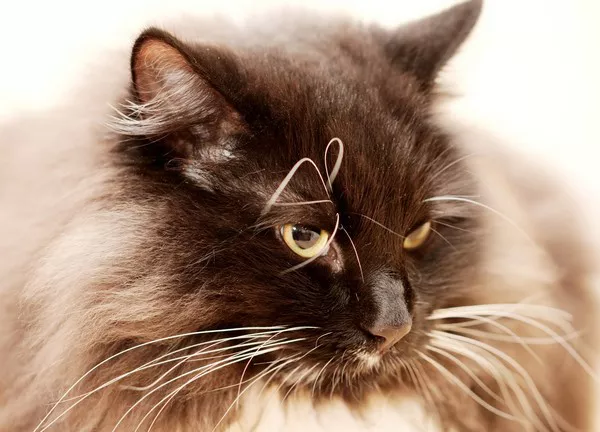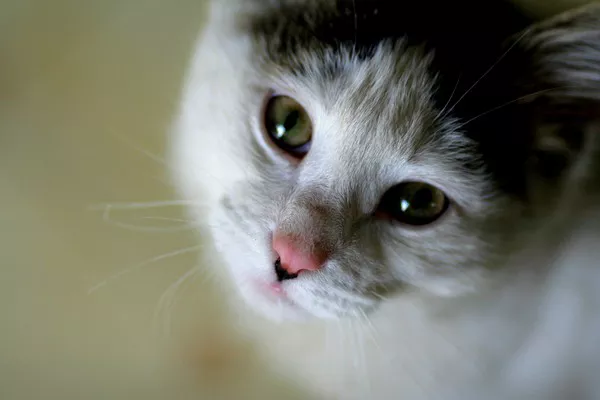As pet owners, ensuring the health and well-being of our cats is a top priority. Cats, like any other animals, are prone to a variety of health issues. From urinary tract infections (UTIs) to dental problems, skin conditions, and digestive issues, it’s essential for cat owners to be aware of these common ailments and understand the medications that can help alleviate these problems. In this article, we’ll explore the most common cat health problems, types of medications available, best practices for their use, and when to seek veterinary care.
Types of Medications for Cat Health
Medications play a crucial role in treating various cat health problems. Depending on the condition, a veterinarian may prescribe medications to address bacterial infections, inflammation, pain, or other symptoms. Below, we will discuss the different types of medications commonly prescribed to cats for various health issues.
Prescription Medications
Antibiotics
Antibiotics are commonly prescribed for bacterial infections, such as UTIs, skin infections, and respiratory infections. The most commonly used antibiotics for cats include amoxicillin, clavamox, and doxycycline. These antibiotics target and kill the bacteria causing the infection.
It’s important to follow the prescribed dosage and complete the entire course of antibiotics to prevent the infection from recurring or developing antibiotic resistance.
Anti-inflammatory Drugs
Anti-inflammatory drugs (NSAIDs) are often prescribed to reduce inflammation, pain, and fever in cats. These medications can help manage conditions like arthritis, dental pain, and post-surgical discomfort. Common NSAIDs for cats include meloxicam and robenacoxib.
Because NSAIDs can have side effects, such as gastrointestinal upset or kidney damage, they should only be used under the guidance of a veterinarian.
Antifungal Medications
Fungal infections, such as ringworm, require antifungal medications to treat. Medications like itraconazole and griseofulvin are commonly used to treat fungal infections in cats. These medications can be administered orally or topically, depending on the severity and location of the infection.
Pain Relievers
Pain relief is often necessary for cats with injuries, surgeries, or chronic conditions like arthritis. Medications such as buprenorphine or gabapentin may be prescribed to manage pain. These medications are typically given orally or via injection.
Over-the-Counter Medications
Over-the-counter (OTC) medications are generally used for minor health issues, such as digestive problems, minor skin irritations, or general wellness. These medications are available without a prescription and are commonly used by cat owners for at-home care.
Supplements for Immune Support
Supplements containing vitamins, minerals, and herbs can help support your cat’s immune system. Supplements like vitamin C, Echinacea, and omega-3 fatty acids are often used to enhance immune function and reduce inflammation. These can be beneficial for cats dealing with chronic illnesses or those recovering from surgery.
Joint Health Supplements
Cats, especially older ones, can develop joint problems like arthritis. Joint supplements containing glucosamine and chondroitin sulfate can help support cartilage health and reduce inflammation in the joints. These supplements can be added to food or given as treats to improve your cat’s mobility.
Digestive Health Supplements
Digestive health supplements, such as probiotics, are used to promote healthy gut flora and improve digestion. These supplements can be beneficial for cats dealing with chronic digestive problems like diarrhea or constipation.
Natural Remedies
Many cat owners seek natural remedies to complement their cat’s health treatment. However, it’s essential to consult a veterinarian before using any natural remedy, as some herbs and essential oils can be toxic to cats.
Herbal Supplements
Herbal supplements, such as milk thistle and dandelion root, are often used to support liver health and detoxification in cats. However, these supplements should be used with caution and under veterinary supervision, as they may interact with prescription medications.
Essential Oils
Certain essential oils, such as lavender or chamomile, are sometimes used to promote relaxation and relieve stress in cats. However, not all essential oils are safe for cats, and some can be toxic. Always ensure that any essential oils used are specifically safe for feline use.
Homeopathic Treatments
Some cat owners prefer homeopathic remedies for conditions like digestive issues or anxiety. Homeopathic treatments are often used alongside traditional treatments but should be discussed with a veterinarian to avoid potential risks.
Common Cat Health Problems & Recommended Medications and Supplements
Understanding the most common health problems in cats is the first step to identifying potential issues and treating them effectively. While every cat is unique, certain conditions are more prevalent than others. Here are some of the most common health problems that affect cats.
Urinary Tract Infections (UTIs)
Urinary tract infections are one of the most common health problems in cats, especially in older cats and those with underlying medical conditions such as diabetes or kidney disease. Symptoms of a UTI in cats include frequent urination, blood in the urine, urinating outside the litter box, and discomfort while urinating.
UTIs are typically caused by bacterial infections and may require antibiotics for treatment. Without proper treatment, UTIs can lead to more serious health issues, including kidney damage or urinary blockages.
Recommended Medications and Supplements:
Clavamox (Amoxicillin/Clavulanate): A broad-spectrum antibiotic used to treat bacterial infections like UTIs.
Cranberry Supplements: Known for supporting urinary health, cranberry supplements may help prevent UTIs.
Dental Problems
Dental problems, such as periodontal disease, gingivitis, and tooth decay, are prevalent among cats. These issues often go unnoticed because cats tend to hide their discomfort. However, symptoms such as bad breath, difficulty eating, drooling, or pawing at the mouth are signs that your cat may be experiencing dental pain or infection.
Dental disease can have serious repercussions on a cat’s overall health, as it can lead to systemic infections affecting vital organs like the heart and kidneys. Regular veterinary dental exams and cleanings, along with home dental care like brushing your cat’s teeth, are essential for maintaining their oral health.
Recommended Medications and Supplements:
Virbac C.E.T. Enzymatic Toothpaste: A safe, effective toothpaste designed for cats to promote oral hygiene.
Hills Prescription Diet t/d: A specially formulated food designed to help reduce plaque buildup and maintain dental health.
Skin Conditions
Cats are also susceptible to various skin conditions, such as flea infestations, fungal infections, and dermatitis. Fleas, in particular, are a common problem for cats, causing itching, hair loss, and inflammation. Other skin conditions, such as ringworm (a fungal infection) or allergies, can cause redness, scaling, and sores on the skin.
Skin problems can be irritating for cats and lead to discomfort. Effective treatment often involves topical medications, antifungals, or prescription shampoos to manage symptoms and clear up the infection.
Recommended Medications and Supplements:
Revolution Plus: A topical flea treatment that also prevents heartworm disease and treats ear mites.
Ketoconazole: An antifungal medication used for treating skin infections caused by fungi.
Digestive Issues
Digestive problems in cats can range from mild to severe. Common issues include vomiting, diarrhea, constipation, and loss of appetite. These digestive issues could be caused by a variety of factors, including stress, dietary changes, allergies, infections, or even underlying conditions like inflammatory bowel disease (IBD).
In most cases, digestive issues in cats require a proper diagnosis from a veterinarian to determine the root cause. Medications such as anti-nausea drugs, anti-diarrheal medications, and probiotics may be prescribed to help restore normal digestion.
Best Practices for Medication Use
While medications are crucial for treating cat health problems, it’s essential to use them properly to avoid potential complications. Here are some best practices for administering medication to your cat.
Consult a Veterinarian
Always consult a veterinarian before starting any medication, whether prescription or over-the-counter. A professional diagnosis is necessary to determine the exact nature of your cat’s health issue and to ensure the appropriate medication is used.
Follow Proper Dosage and Administration Guidelines
When administering medication, it’s important to follow the dosage and administration instructions provided by the veterinarian. Overdosing or underdosing your cat can lead to ineffective treatment or adverse side effects. Some medications may need to be given with food or at specific times of day, so be sure to follow the guidelines closely.
Be Aware of Potential Side Effects
Like all medications, cat medications come with the possibility of side effects. Common side effects include vomiting, diarrhea, lethargy, or changes in appetite. If you notice any unusual behavior or symptoms after administering medication, contact your veterinarian immediately. Additionally, always inform your vet about any other medications or supplements your cat is taking to avoid harmful interactions.
Conclusion
Caring for your cat’s health involves more than just feeding them the right food and providing love and attention. It requires awareness of common health issues, understanding the appropriate medications for treatment, and maintaining a strong focus on preventive care. By consulting your veterinarian, following proper medication guidelines, and ensuring a healthy lifestyle for your cat, you can help them lead a long, happy, and healthy life.
Related Topics



























